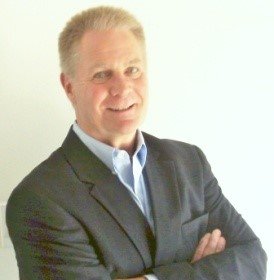For a lot of people that I talk to, online personal training may not be right for them to begin with, so I don’t lead them in that direction. After joint replacement, I can provide online coaching and give them a good idea of what they can do then. Everybody can understand that because I’ve been through it and done it, and I’ve taught a lot of patients what to do over 22 years of physical therapy.
A lot of people who have not exercised before need somebody there to run them through the exercise and make sure they’re doing it properly. They’re fearful they’re not going to be held accountable because it depends on their record-keeping. I can’t help them if their records are not up to par? Some people are fearful that it’s just not going to work. Others in that age group aren’t really computer literate, so they don’t want any part of online personal training. The online coaching is done through telephone or Skyping or email. Most people are comfortable with that.
Phil Faris: Can you share a lesson that you’ve learned from your experience with working with people online? Something that you could share with the people who are considering hiring a coach to recover from total knee replacement. What’s some advice you might be able to give that would help them decide whether hiring an online coach like you would be a good choice for them?
Richard Haynes: Before somebody has surgery, it’s only natural that they’re going to go out and talk to everybody under the sun that they can find who’s had total knee replacement surgery, and that’s not hard to do. You can probably go down your street and find three or four people that have had it or people that are getting ready to have it. Unfortunately, what is out in public is a lot of different misconceptions. Like the misconceptions, we discussed earlier what happened, that people are getting all the good, the bad, and the ugly about a total knee replacement.
You’ll hear somebody that’s had excellent results and somebody that almost lost their leg or somebody I know, “Dear Joe down the street. He’s in a wheelchair. I’ll never have that done.” By hiring somebody like myself or other coaches that work in physical rehabilitation, we know the ins and outs of what is going to take place with that person, almost to a tee how they’re going to deal with it.
We can give them straight information without getting a lot of different variables that are out on the street of how it’s going to play out and how it’s going to impact your life and increase your functional mobility later. We’ve been there, done it. I’ve taught it and worked with many patients, so I can give them the astute information they need to make an intelligent decision on that.
Of course, I’m not a doctor, so I cannot diagnose or tell them what they’ve got. I can encourage them and tell them what questions to ask their orthopedic surgeons, and let them know precisely what’s going to take place during the physical rehabilitation process. I had surgery in 1999. You talk to me today, asking, “How did that go for you?” I’m going to tell you it went great.
I find that the further back somebody’s had surgery, the wilder the stories will get. It’s almost like a fish story. The more somebody’s told about the fish they caught, the bigger that fish becomes. What some patients get confused about when other patients are talking to them, and not trying to mislead them on purpose, but almost convincing them they had the surgery done without anesthesia and that they were golfing in two days. Sometimes, I deal with patients initially, especially after surgery, that gets depressed because they think they should be doing so much better because they know somebody down at the country club that said they’d had it done and were golfing in three days.
I see a lot of this down in Florida with snowbirds, and so forth. Hiring a coach or hiring somebody like myself, I’d give you the scoop right away on what you can deal with, and it’s solid information. You can always discuss it with your surgeon from a therapy standpoint. But I know how the recovery should play itself out and what somebody should be doing from day to day. I get them the right information the first time instead of getting the runaround and getting frustrated with different avenues of information that may or may not be accurate.
Phil Faris: That makes a lot of sense to me, Richard, because what I’ve found is that people need an advocate when they talk to a healthcare provider. Someone that can help them understand what questions to ask and interact with their doctor. More and more doctors are expecting those type of questions. They want their patients to ask questions to get them involved, or at least good doctors do.
A lot of times, people don’t have someone to help ask the right questions, prepare mentally and physically for what’s involved with a total knee replacement. So, they may not have a clear idea of what to expect.
After the surgery, how do you help clients with the rehabilitation as an online coach?

